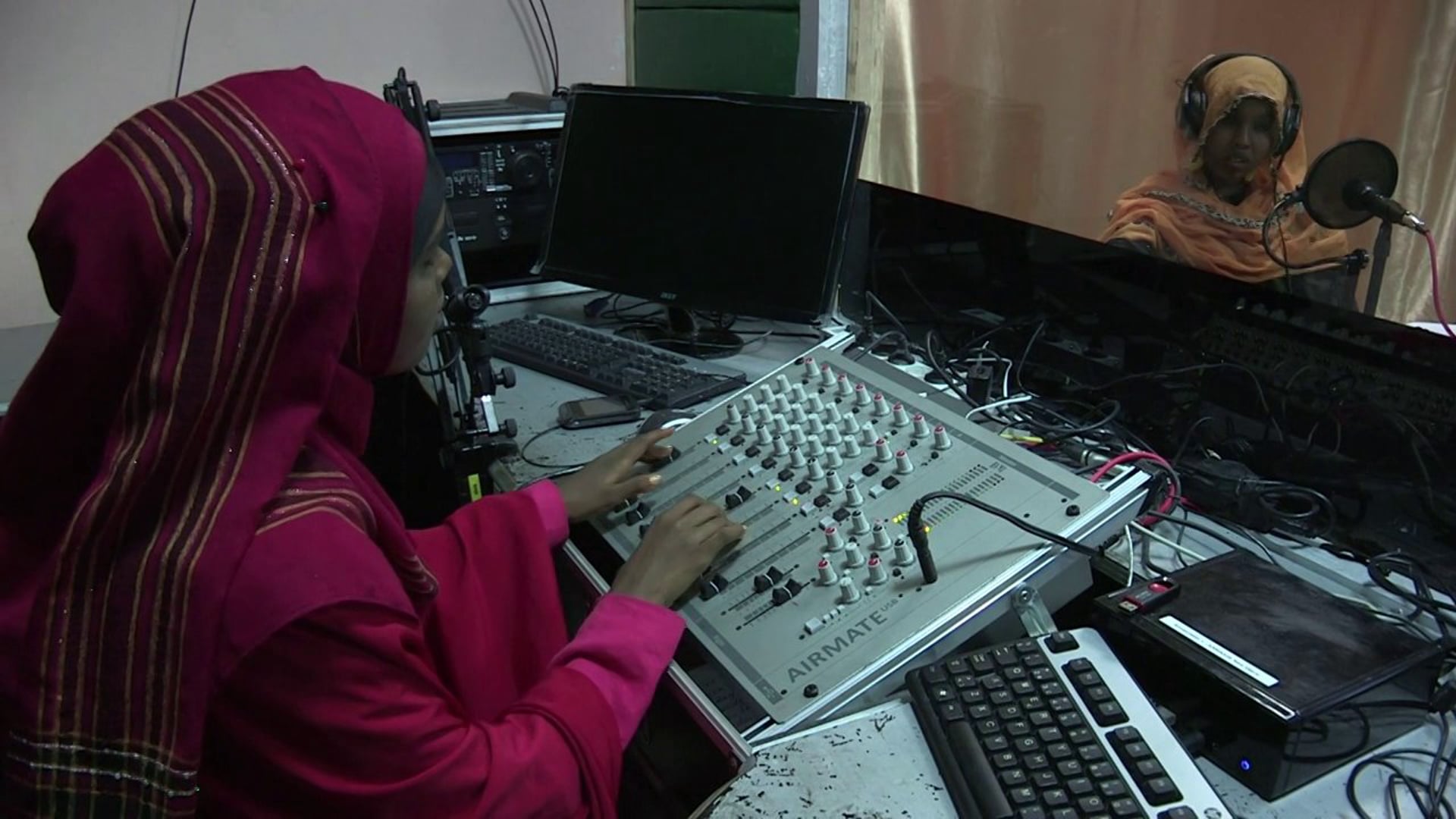As the world cerebrated the World Radio Day on the 13th of February this year under the theme “Gender Equality and Women’s Empowerment in Radio”, a group of women is pushing boundaries at an all–female run radio station in Mogadishu Somalia.
STORY:
In a nondescript white building along the bustling Makkaal Mukarramah Road, a group of women intently focus on their computer screens, playing and replaying sound pieces. Somali music plays softly through the speakers as the presenter fits on her headset and starts the show. Welcome to Aman Radio, one of two all-female run radio stations in Mogadishu.
Relentless conflict has put Somalia’s women as one of the most disadvantaged in the world. Especially, in Mogadishu’s internally displaced camps, they are particularly vulnerable to rape and domestic violence. Despite condemnation of acts of violence against women and efforts to curb their marginalization by the government, aid agencies and civil society, one voice has been predominately absent; the voice of the Somali women. This is what Aman Radio seeks to fill.
I chose journalism because I want to amplify the voices of my society and especially those of Somali women. I want to speak for the disadvantaged and those whose voices never receive attention, “explains Anisa Abdullahi, an editor at the station. “I chose Aman because it’s dedicated to social issues. We rarely discuss politics. We focus on the community, women, healthcare, education and the rebuilding of the country. So in some little way, I want to help my society by highlighting their needs and celebrating their accomplishments,” she adds.
As Somalia marks the World Radio Day, Radio Aman’s unique position in support of Somali woman stands out. Marked every 13th February, this year’s observance highlights the need for radio broadcasters everywhere to promote the voice of women and to enhance the role of women within broadcast organizations.
It’s not easy being a journalist or running a media outlet in Somalia. The country still ranks as one of the most dangerous for journalists to work in. According to the National Union Of Somali Journalist (NUSOJ), 2012 was the bloodiest year for Somali journalists and media workers, with 18 of them killed. Although the situation improved in 2013, 7 still lost their lives in the line of duty.
Frequent power cuts and transmission problems form the bulk of challenges for the station’s producer, Aliyo Mohamed Osman.
“There are challenges. Sometimes a show is about to start and the computer hangs or the power goes out in the middle of a live show. There are a lot of challenges,” says Aliyo.
The station’s manager Farhiyo Farah Roble is unfazed by the difficulties. After all, the journey to the realization of the group’s dream was littered with challenges.
When you start working on something, there is bound to be a challenge. It’s happened to us too. When we used to work on this, people would ask why were they doing this because girls usually don’t do it. So when some proposed that they would come up with an all-female run radio station, it was dismissed as an impossible thing, like rewinding time and going back to tomorrow,” she explains. “People saw it as an impossible and unrealistic mission but we have overcome that.”
On a typical day, the station’s programming varies from debates, call-in shows, music request hours and even cooking shows. Since it hit the airwaves on 97.4 FM, the station has received favorable response and broadcasts from 7:30 am to 5pm daily.
While two decades of war might have stunted progress in Somalia, the impressive increase in the number of media outlets continues to challenge that foregone conclusion. There are at least 28 radio stations in the capital Mogadishu alone. As fingers click away and the next show’s playlist comes to life, Aman Radio hopes to reaffirm that not all hope is lost, especially for the women of Somalia.
Likes: 3
Viewed:
source

